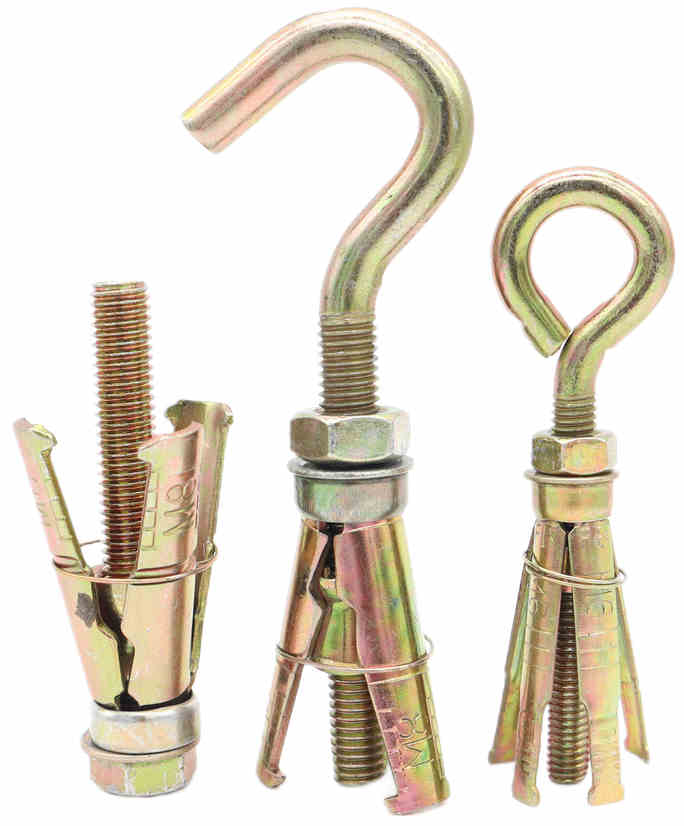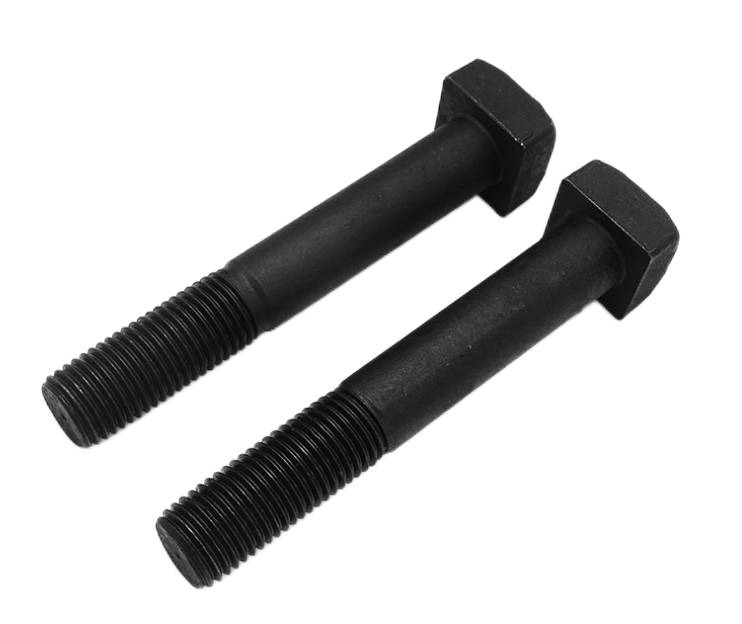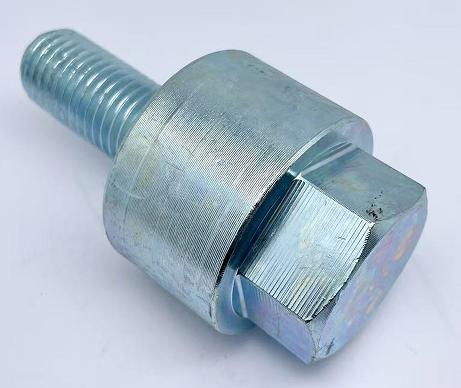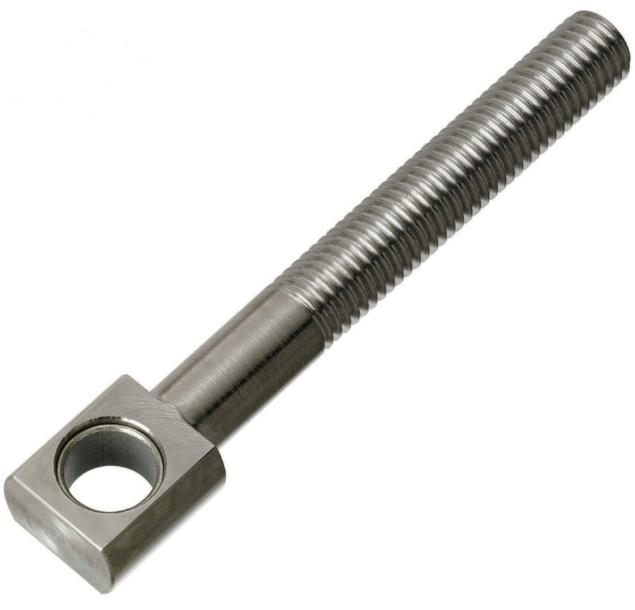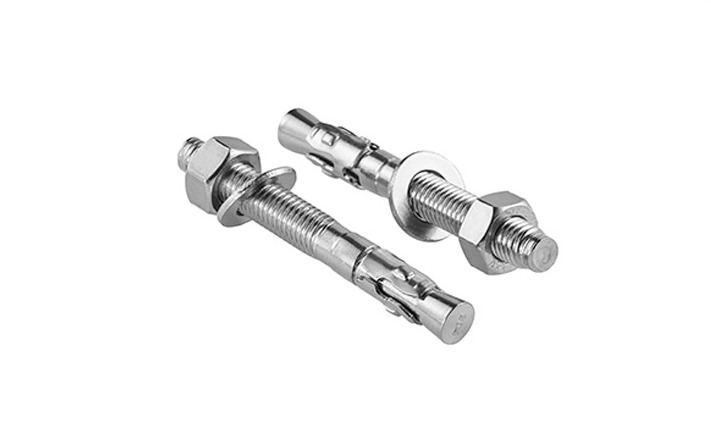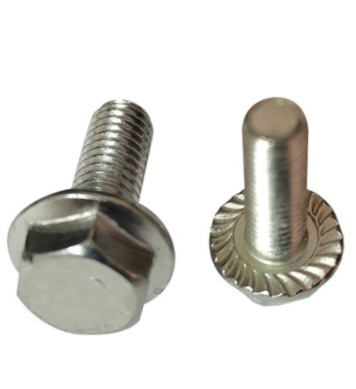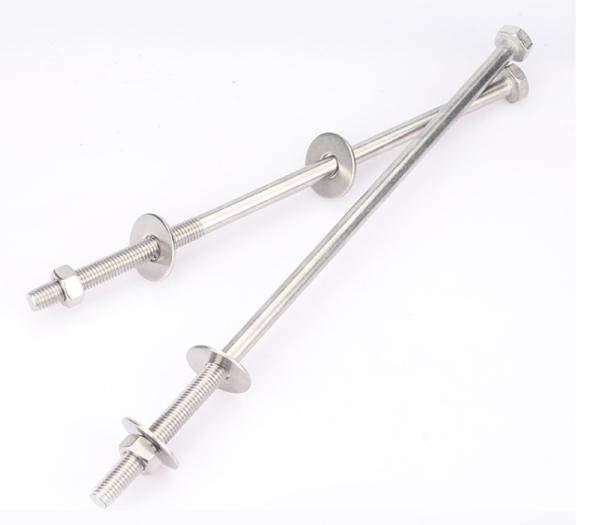A Guide to Chemical Anchor Bolts
In the world of construction, securing heavy objects to concrete, brick, or masonry is a crucial task. While traditional mechanical anchors have served well for decades, chemical anchor bolts have emerged as a powerful and versatile alternative. This article delves into the world of chemical anchors, exploring their composition, features, advantages, and numerous applications. We’ll also peek behind the curtain to understand the manufacturing process of these dependable fasteners.

What is a Chemical Anchor Bolt?
A chemical anchor bolt, also known as a glued-in anchor or a resin anchor, is a fastening system that utilizes a specially formulated chemical resin to create a strong bond between a threaded rod and the base material. Unlike mechanical anchors that rely on friction or expansion to hold in place, chemical anchors achieve their exceptional strength through a chemical reaction.
The system typically consists of three components:
- Threaded Rod or Rebar: This forms the core of the anchor and is usually made of high-strength steel, stainless steel, or a similar material. The chosen diameter and length will depend on the intended application and load requirements.
- Chemical Cartridge: This pre-measured cartridge holds the key ingredient: a two-part epoxy resin adhesive. The resin components are separated within the cartridge to maintain shelf life and prevent premature curing.
- Injection Gun: This specialized tool is used to dispense the resin into the pre-drilled hole. The gun mixes the two resin components during the dispensing process, initiating the curing reaction.
Features of Chemical Anchor Bolts:
Chemical anchor bolts come with several distinct features that contribute to their superior performance:
- High Load Capacity: Chemical anchors boast a significantly higher load-bearing capacity compared to mechanical anchors. This makes them ideal for securing heavy machinery, support structures, safety railings, and facades.
- Versatility: Chemical anchors come in a variety of formulations catering to different base materials, load requirements, and environmental conditions. They can be used in hollow and solid concrete, cracked concrete, and even underwater applications.
- Non-Expanding Design: Unlike mechanical anchors that exert pressure during expansion, chemical anchors create a purely adhesive bond. This minimizes the risk of cracking or spalling in the base material, making them suitable for close-to-edge installations.
- Weather Resistance: Chemical anchor resins are formulated to withstand extreme weather conditions, including high temperatures, freezing conditions, and UV exposure.
- Vibration Resistance: The adhesive bond created by chemical anchors provides superior resistance to vibrations, making them ideal for applications subjected to constant movement or seismic activity.

Advantages of Chemical Anchor Bolts
There are several compelling reasons to choose chemical anchors over traditional methods:
- Superior Strength: As mentioned earlier, chemical anchors offer unmatched holding power, making them ideal for heavy-duty applications where mechanical anchors might fail.
- Reduced Risk of Damage: The non-expanding nature of chemical anchors minimizes the risk of cracking or damaging the base material, particularly in weaker concrete or near edges.
- Versatility: Chemical anchors can be used in various base materials, offering a broader application range compared to mechanical anchors limited by specific material types.
- Weather Resistance: The cured resin provides excellent water resistance, protecting the anchor from corrosion and ensuring its long-term performance in harsh environments.
- Vibration Resistance: Chemical anchors effectively resist vibrations, making them suitable for applications prone to movement or seismic activity.
- Wide Range of Sizes and Formulations: Chemical anchors come in various sizes and formulations to cater to specific load requirements and base materials.
Applications of Chemical Anchor Bolts:
Chemical anchor bolts find application in a wide range of construction scenarios where high strength and long-term reliability are critical. Some prominent applications include:
- Heavy Machinery Installations: Chemical anchors are the go-to solution for securing heavy machinery, generators, and equipment to concrete floors and walls.
- Structural Supports: They are used to fasten beams, columns, and other structural elements to concrete or masonry, ensuring the stability of entire structures.
- Safety-Critical Applications: Due to their high strength and reliability, chemical anchors are often used for securing safety railings, fall protection systems, and other critical infrastructure.
- Cladding and Facades: Securing cladding panels, curtain walls, and other facade elements to concrete or masonry substrates is another common application.
- Interior Fit-outs: Anchoring heavy cabinets, suspended ceilings, and other interior elements in commercial and residential buildings often utilizes chemical anchors.
- Marine Applications: Certain formulations of chemical anchors are specifically designed for underwater installations, making them suitable for docks, piers, and other marine structures.

Manufacturing of Chemical Anchor Bolts
Chemical anchor bolts consist of two main parts: the resin and the threaded rod.
1. Chemical Resin
The heart of a chemical anchor system lies in the resin. Most commonly, these resins are formulated as two-part epoxy systems. The first part consists of the resin base, a viscous liquid that serves as the foundation for the adhesive bond. The second part contains the hardener, a chemical catalyst responsible for initiating a curing reaction when mixed with the resin base.
This mixing process triggers a precise chemical reaction within the resin. The reaction causes the resin to transform from a liquid state into a solid state, creating a strong and permanent adhesive bond. Manufacturers may also incorporate additional components into the resin for specific purposes. For instance, fillers can be added to adjust the viscosity of the resin, making it thicker or thinner for easier application depending on the installation method. Fire-retardant additives can also be included in the resin formulation to enhance its fire resistance properties for specific applications.
2. Chemical Anchor Bolts
The anchoring element itself is typically a threaded rod manufactured from high-strength steel. These rods are specifically chosen for their ability to withstand significant tensile and shear loads. Manufacturers offer them pre-cut to specific lengths for convenient use or in coils that can be cut to size on-site for greater flexibility.
To enhance corrosion resistance and ensure long-term performance in various environments, the surface of the steel rod may undergo different treatments. A common option is zinc plating, which provides a thin layer of zinc that protects the steel from rust. Another option is galvanization, a process that coats the steel with a thicker layer of zinc for even greater corrosion protection. For applications in highly corrosive environments, stainless steel rods offer the most robust resistance to rust and other forms of corrosion.

Conclusion
Chemical anchor bolts represent a significant advancement in anchoring technology. Their superior strength, versatility, and minimal impact on base materials make them the preferred choice for a wide range of demanding applications. While the installation process for chemical anchors may require more preparation compared to mechanical anchors, the long-term benefits outweigh the initial investment. For projects requiring high load-bearing capacity, long-lasting performance, and minimal impact on the base material, chemical anchor bolts provide a secure and reliable solution.


